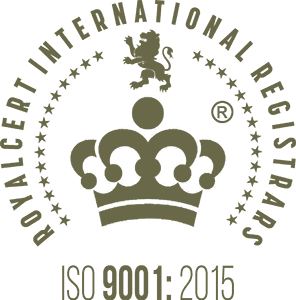Covid-19 brought the aviation industry to a standstill. But the pandemic has also fostered a culture of innovation that is transforming the travel industry for good.
Business leaders are looking to technology to balance the multiple challenges of transporting millions of people quickly, efficiently, safely, securely and economically. This digital revolution has the potential to transform air travel making it safer, greener and more economical.
Never one to waste a good crisis, industry leaders have taken the pandemic as an opportunity for radical transformation. Business transformations that would have taken years have been executed in days and weeks. Cross-fertilization of ideas is accelerating the evolutionary process as industries learn from each other.
Aviation has realized losses of over US$118b during 2020 alone. And counting. With a third surge of infections taking hold around the world, it is clear the world will need to find a way to live with it. The aviation industry is doing just that – and using technology to make safe travel a possibility again.
In this article, we explore three technology innovations airlines are using to improve the traveling experience for passengers.
Blockchain Technology
Blockchain Technology, an open digital register, records information securely. It is almost impossible to edit or change. A self-authenticating mechanism, blockchain is revolutionizing the travel industry’s operations.
What does this mean for passengers?
The travel experience is fast becoming ‘interface’ driven. Blockchain technology is vital to ensuring the vast lakes of private digital data are managed safely and securely. Customer data is protected with a unique identifier that cannot be replicated. This not only ensures data privacy but also streamlines the verification and validation processes.
For instance, in potentially the first example of blockchain being used to directly benefit people, the International Air Transport Association (IATA) has developed a mobile app, Travel Pass, to help global aviation restart. Passengers can use this app to store and manage information on their COVID-19 tests and vaccines and any other health information as mandated by governments or health officials. A secure, highly efficient, digitised ‘health passport’, this app would have been difficult if not impossible to develop without blockchain technology.
From a services perspective, Travelchain, an open-source, blockchain-enabled tech company directly connects passengers and airlines using loyalty programmes. Travelchain offers passengers redeemable tokens they may exchange for money or services. It offers airlines and travel companies exclusive consumer data insights they can use to design and develop personalised travel services for their customers.
Blockchain technology has delivered a simple and elegant solution to a complex problem. Travellers can now choose what, when and how they share personal information with airlines, passenger services and travel companies without having to worry about compromising their privacy and data security.
Internet of Things (IoT)
While blockchain uses secure data to personalise the customer experience at a granular level, IoT opens up access to ever more vast amounts of data for analysis. IoT is transforming the future of travel with the scale of the data it can generate as the technology ecosystem becomes increasingly interconnected and interactive. Where once we had smart phones, we are now surrounded by smart gadgets and smart sensors, literally tracking our every move and choice.
What does this mean for passengers?
Bluetooth Beacon technology is a low-cost device that helps passengers navigate airports seamlessly and more efficiently. At Miami International Airport, passengers can use a Beacon-powered app to get personalized updates based on their location and the services available at the airport. From the lost and found counter to food services, the currency exchange to the taxi rank, the app will help passengers find their way around quickly and independently.
According to a recently published study by Deloitte, 86% of the leaders in the industry expect tangible benefits from IoT within the next three years. Moreover, the study goes on to suggest that over 37% have already started implementing IoT improvements to their processes, in order to keep rising costs in check.
Self Service Airports
From using blockchain technology to manage passenger data and IoT to manage passenger experience, its only a step to self-service airports. The pandemic driven need to maintain ‘social distancing’, limit physical ‘touch points’ has merely added a sense of urgency. Futuristic air travel is now; the dark ages of pre-crises travel are just that.
What does this mean for passengers?
In September 2020, at the height of the pandemic, Dubai International Airport introduced self-check-in kiosks enabling passengers to get their boarding passes without ever touching a screen. Since then major airports around the world have been turning themselves into flow-channels. They are installing hi-tech scanners, self-serve kiosks and touchless technology to minimise human-to-human contact. These ‘walk through’ funnels are truly revolutionary. They enable a contact-less, hassle-free passenger experience from the airport to the plane.
The pandemic has accelerated this trend to such an extent that airlines and airports around the world are using smart sensors to track luggage, manage queues and bottlenecks, inspect planes, improve maintenance and reduce AOG time. This is just the beginning.
Passengers will need to become tech-savvy as they will have to scan their own passports, print their own boarding passes and luggage tags, weigh and drop off their luggage. Some people will find this whole process clinical and disconcerting. But there is no turning back. Travel has been transformed.
Conclusion
The transformation of air travel is putting huge pressure on capital expenditures with significant upfront investment from airlines and airport operators. However, in the long-run it will make airports cleaner, greener, more efficient and reduce operational costs. Global air travel is hopefully headed in the right direction.



